Titli: An unsettling and suspenseful portrait of a dysfunctional family
Tuesday Talkies: The film directed by Kanu Behl stars Shashank Arora as the titular character
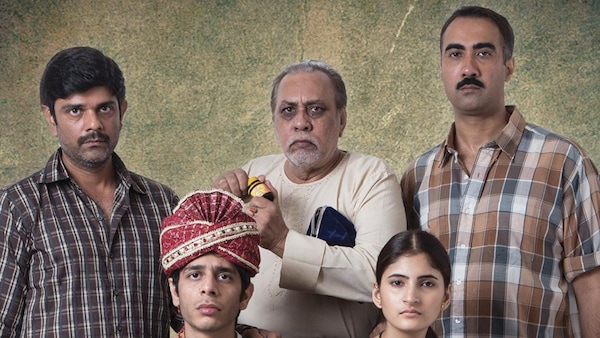
Last Updated: 02.00 PM, Sep 21, 2022
In our new weekly series, Tuesday Talkies, we recommend critically acclaimed and award-winning Indian films.
There are a few films that are deeply disturbing and leave behind a lingering pain in your heart, even days after you watch them. Kanu Behl’s Titli is one such film. Titli is not your usual Bollywood movie with logic-defying action sequences, predictable storyline, below-average humour or a weak screenplay. It does not boast any A-list Bollywood actors who can draw audiences to the theatres on an opening day and bring in big numbers at the box office. But what it offers is a realistic, compelling and moving story combined with impeccable performances by the cast.
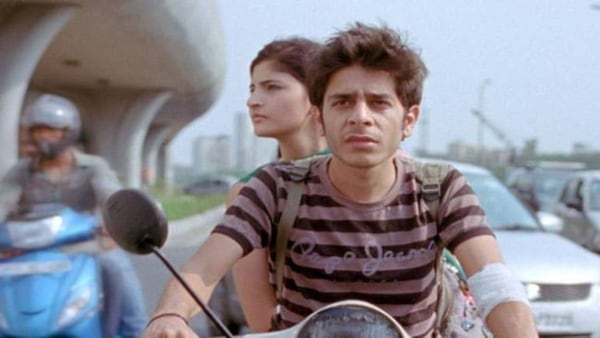
The film opens with Titli (Shashank Arora), the youngest among three brothers who reside along with their father in a dilapidated house on the outskirts of Delhi. While his brothers Vikram (Ranvir Shorey) and Bawla (Amit Sial) are carjackers who carry on with their lives without any plans for the future, Titli has a dream. He has his eyes set on a garbage space in an upcoming mall, for which he must shell out Rs 3 lakh. He somehow manages to collect the required amount but fate plays a cruel trick on him and he loses the money in a single night. That’s when Vikram and Bawla decide to marry off Titli. They also come to the conclusion that a woman could help them in entrapping their victims. Soon, Titli is married to Neelu (Shivani Raghuvanshi), who is unaware of the brothers’ ‘real job’. When she learns about the same, she refuses to be a part of their plans but decides to stick around when Titli promises her that he would help her unite with her lover Prince. From then on, the story unfolds gradually, uncovering the traits and motives of each of its characters.
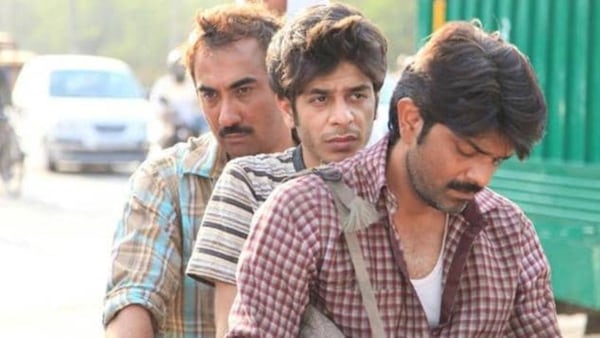
The first few minutes of the film set the stage for what’s in store. Screenwriters Behl and Sharat Katariya suck us into the lives of the three brothers. Vikram is married and has a daughter but they live separately. He is short-tempered, abusive, and doesn’t require a valid reason to get into a fistfight with anyone. He is the decision-maker of the household. Baawla is mostly quiet and is very obedient to his elder brother. He is the one who gets stuck in the middle every time Vikram and Titli have a fight. It’s very easy to relate and empathise with his character. Whereas, Titli wants to escape the suffocating life and dreams of a better future. But that doesn’t make him a virtuous man. He has his follies and is ready to go to any extent in order to lead a dignified life outside the four walls of his dark and worn-out house. Their father (Lalit Behl) is mostly a mute spectator to all that’s happening in the house, uttering words only on a few occasions.
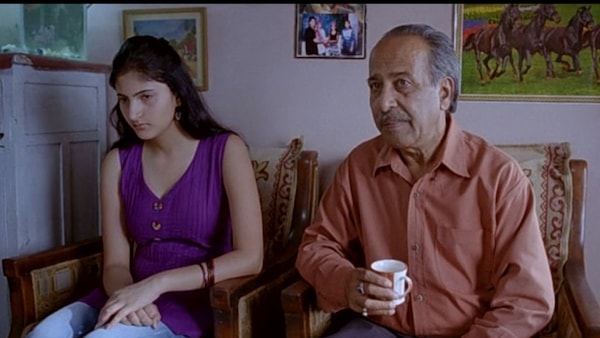
The film’s strength lies in its well-rounded character arcs. These are characters that we are familiar with but prefer to keep a distance from in real life. And although they are not likeable characters, there are scenes that show them in their weakest moments and expose their vulnerabilities. For instance, when his wife thrusts divorce papers at him, the hot-headed Vikram remains silent and signs the papers with tears welling up in his eyes. Similarly, Bawla, who is hinted to be gay, is shown to be weeping in the dark when one of his male friends ends their relationship. Such additions to the plot make these characters more humane and less repulsive.
Behl and Katariya also deserve praise for developing two strong women characters who are very sure of what they want and with whom they want to spend their lives. Raghuvanshi’s Neelu has a dream of her own — eloping with Prince, a wealthy married man. And in her quest for a better life, she even lets Titli inject her local anaesthesia and slap her wrist multiple times with a hammer. In another notable scene, she rejects Titli’s advances on their wedding night and showcases her assertiveness without saying a single word. Similarly, Sangeeta (Sarita Sharma), Vikram’s estranged wife, doesn’t shy away from seeking alimony while living with another man whom she refers to as a friend.
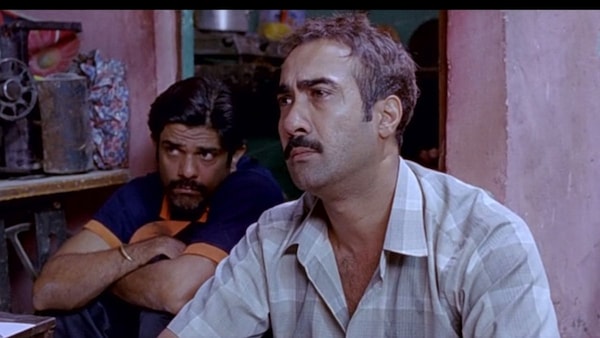
Siddharth Diwan’s cinematography takes us through the narrow bylanes of the country’s capital into the small and claustrophobic house of the protagonists. The poorly maintained house is symbolic of the gloomy and sad lives the characters are leading. The director makes sure to keep us hooked to the screens as he manages to keep the tension alive. And one cannot miss the peculiar but annoying manner in which the men brush their teeth and clear their throats.
You can watch the movie here.
